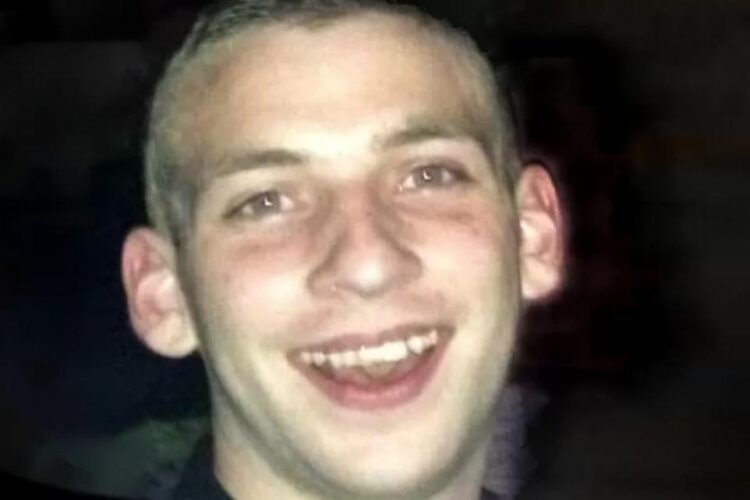By Gavin Mackintosh-
The family of a man murdered by serial killer Stephen Port has called for a public inquiry into the “toxic” Metropolitan Police Service, after a review labelled it institutionally homophobic.
It follows a report from Baroness Dame Louise Casey found the Met had a “bullying culture” where homophobia was “tolerated, ignored or dismissed as ‘banter’.”
The report came 24 years after the Macpherson Report in 1999 about Stephen Lawrence’s murder and its aftermath had concluded that the Met was institutionally racist.
Only two of the 18-year-old’s five killers have ever been brought to justice, following abject failures in the investigations into his murder that were marred by racism and alleged police corruption.
A whistleblowing gay officer told the review he had suffered “a sustained campaign of homophobia from inside the Met”, being called a “f****t” and a “c*** sucker”.
He said he had seen WhatsApp chats between colleagues, using anti-gay slurs and talking about stopping and searching him when he was off-duty.
“I am scared of the police,” he said. “I don’t trust my own organisation. I will vary the route I walk to avoid walking past police officers when I am not at work.”
Another gay officer told the review: “When you heard an LGBT matter come out on the radio, you’d hear a collective groan. People don’t want to attend those calls.”
He said he was so “disgusted” by the handling of the Stephen Port murders that he came “close to quitting”.
The family of Port’s final victim, Jack Taylor, said: “There must now be a public inquiry into how and why this force is failing so badly.”
The lawyer who represents the family of Chris Kaba, who was shot dead by police last September, said the Casey review reflects the experiences of many relatives, who “often have to fight tooth and nail” to get information.
In June 2014, Port called police and claimed he had found Anthony Walgate, who died from a drug overdose, collapsed outside his front door in Cooke Street, Barking.
Police later discovered Port had in fact taken Mr Walgate home, drugged him and then dumped his body outside.
He was charged with perverting the course of justice, but not investigated over involvement in the death.
Mr Walgate’s loved ones felt his death was suspicious, but said they felt police dismissed them because Mr Walgate was a gay sex worker with drugs in his system.
Port went on to kill three more men: Gabriel Kovari, Daniel Whitworth and Jack Taylor.
East London and West Essex Guardian Series: Clockwise from top left: Gabriel Kovari, Daniel Whitworth, Jack Taylor and Anthony Walgate
Clockwise from top left: Gabriel Kovari, Daniel Whitworth, Jack Taylor and Anthony Walgate (Image: Met Police)
Missed opportunities
Police did not look Port up after Mr Walgate’s death, which would have revealed he had previously been reported for rape.
Officers claimed there were no signs Mr Walgate was assaulted, despite bruising under his arms, and never tested swabs from his body for DNA.
Even after Port came under suspicion for perverting the course of justice and police seized his laptop, they didn’t analyse it. Port had used it to access rape-themed pornography and search for date rape drugs.
Port placed the bodies of his next three victims within metres of one another in the same graveyard near his home.
Despite Mr Kovari and Mr Whitworth being found less than a month apart, police neither linked the deaths nor treated them as suspicious.
Even after Mr Taylor was found, police did not join the dots – until a month later, when an officer from Mr Walgate’s case happened upon a CCTV print-out and recognised Port as the man seen with Mr Taylor shortly before his death.
“Angry”
“I was very angry,” a gay officer told the Casey review. “I was so disgusted and embarrassed to say I worked for the Met.
“Despite the Met arguing successfully at the inquest that it couldn’t be homophobia, most people in the LGBT community think differently and believe it’s due to institutional homophobia.”
Baroness Casey’s review found homophobia “in plain sight”.
Just under one in five gay, lesbian or bisexual officers and staff had experienced homophobia – and 14 per cent of those said it happened “at least once or twice a week”.
Mr Taylor’s sisters, Donna and Jenny, said the review “again highlighted the toxic culture across the Met Police”.
East London and West Essex Guardian Series: Jack Taylor was found dead in September 2015. Stephen Port had already murdered three other men, but police failed to connect the dots
Jack Taylor was found dead in September 2015. Stephen Port had already murdered three other men, but police failed to connect the dots (Image: Met Police)
“Someone needs to take responsibility for tackling issues such as homophobia,” they said. “Someone needs to own it. Not one person has.
“We still feel that if Jack had been a girl, the whole situation would have been dealt with differently from the start.”
The leader of Barking and Dagenham Council, Darren Rodwell, agreed, saying: “We believe the policing of these murders was institutionally homophobic and blind to the LGBTQ+ community, reflecting a culture out of touch with modern Londoners and our changed borough.”




